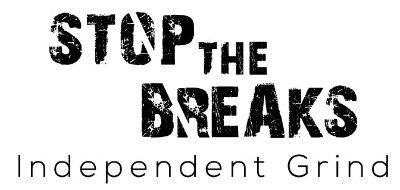
Bitcoin seems to be the word of the year of 2017 and perhaps even 2018.
The value of this cryptocurrency has made a splash in the stock markets and money matters bureaus have been inundated with queries as to whether or not the cryptocurrency is worth investing in this late in the game.
But while Bitcoin may be one example of a cryptocurrency, the technology that is spans from – blockchain technology – actually has far greater uses.
For instance, there has already been a craze of blockchain created collectibles including Cryptokitties – a collectible, tradable use of blockchain’s unique property that sees cat images created and given a value based on the individual chains they are formed from.
But what other uses could blockchain have, and more importantly could the music-related blockchain start-ups we’ve seen change the industry as we know it?
What Will Bitcoin Do for the Music Industry?
Wired magazine predicts that blockchain will be used as a positive disruptive instrument in the music industry as it is today.
This digital, verifiable data ledger will help protect data and protect copyright for musicians starting out – and even already established.
With Deezer and Spotify already ensuring fewer intermediaries are required to establish artists’ intellectual property rights, it’s only a matter of time before the unique and trackable technology rolls out further afield.
The music industry affords different rights depending on jurisdiction, so blockchain helps ensure they remain consistent.
Essentially, copyright holders are paid directly for their content that is attached to each block on the blockchain, so the content owner can never be swindled for what they are owed.
This will especially be positive towards independent musicians and those unsigned to labels or seeking greater representation.
Many claim that the music industry’s failure to adopt new technologies leads to companies going obsolete (Napster) or struggling (SoundCloud).
The embracing of blockchain shows that the music industry is willing to adapt to technologies that other industries have been using for years.
What Does Bitcoin Do Now?
In fact, Musician Imogen Heap trialled the tech in 2015 with her single Tiny Human, which was sold for 45p on an Ethereum blockchain platform called Ujo.
Following the success of the move, she has dedicated her time to creating her own blockchain platform, Mycelia, which aims to give artists more control over their work and their data when it comes to sharing with the public and other artists.
Part of the success of the blockchain, and how it is used so seamlessly in music and beyond, is the trust factor involved in payments. The ability to pay via blockchain cryptocurrency has already been rolled out across the board.
For example, in January, Mark Cuban announced that his Dallas Mavericks NBA franchise will allow payments in bitcoin.
The casino industry is also embracing the benefits of bitcoin payments, as Betway online shows with its lists of reasons for and against bitcoin, which include instant transactions and lack of fees but also high volatility.
Still, they conclude, it may just be the currency of the industry’s future. Moreover, Burger King already offers bitcoin payments in the Netherlands – and even offered a free burger for each one purchased digitally.
What Else Could Blockchain Do?
Mycelia could very well prove fruitful, but a journalistic equivalent has already been touted.
By allowing journalists to post content (anonymously if they wish) and receive micropayments on the advertising for that page, a pay-per-read model of journalism is established, rewarding those journalists and writers who are able to accrue the news site the most amount of views.
Civil is one of the first websites that aims to facilitate a blockchain sharing and payment system for publishing. Ultimately, the technology will give artists and creators greater control, more rights, and a record of their work and payments for said work.
By creating what they consider “sustainable journalism”, they seek to disrupt an entire industry in a way that works better for those doing the legwork.
Plus, the system should work as a better meritocracy model of business, rewarding those who work harder and to a greater degree.
Even social media could embrace the blockchain aspects of unique coding for influencers and those paid by companies to promote products to their large followings.
This will help incentivise influencers and add a more transparent layer to the promotions industry.
Blockchain technology may have entered the general conscience as an investment opportunity for money that foregoes the control of financial intermediaries, but it will remain in our lexicon as a way of ensuring greater fairness and a better spread of economic wealth for those who are actually creating the content that generates the clicks and therefore the ad revenue and other means of payment for the company as a whole.
Indeed, when it comes to the music industry, by offering a fairer way for artists to establish themselves, they will be able to better promote themselves and let their music and fanbase speak for themselves as a truly independent scene.
It may begin with payment via bitcoin, but the technological scope for blockchain technology is almost endless – as long as people will embrace it.



